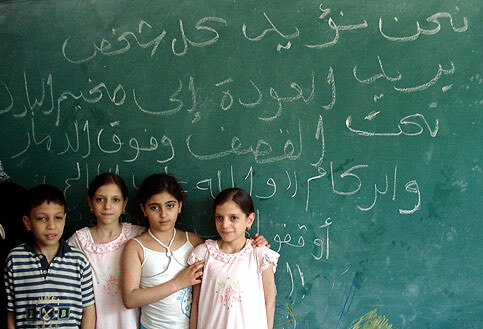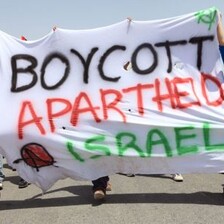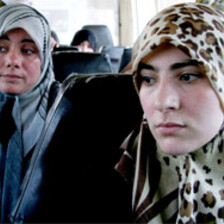Electronic Lebanon 25 May 2007

Displaced children from Nahr al-Bared camp staying at an UNRWA school in Badawi camp. (Image courtesy of Marcy Newman)
A few days ago I woke in the morning to find the following email in my inbox asking for my support and signature:
Our Army is our pride — PetitionIn times of conflict people believe in writing petitions as a way to protest or show their political positions nonviolently. However, this particular petition infuriated me because it clearly reflects a lack of moral compass pervasive in Lebanese society.Our support goes to the Lebanese Army, our soldiers, our national pride We send our condolences to the families and the martyrs Always proud, always in our hearts, always in our prayers! God Bless YOU and your families for the sacrifices you make each and every day We bow in respect in front of their courage and devotion — We are a witness to the strength, honour, wisdom and patriotism of the Lebanese Armed Forces as well as its glorious history and magnificent skills and tremendous heroic sacrifices it gave our beloved Lebanon. Support our army and our soldiers for all the sacrifices they are making. They are the guarantee to our salvation.
What is more disturbing is that the petition, with over 10,000 signatories thus far, echoes the general mood in the country, where we have seen people take to the streets in support and celebration of the army; and where people are expressing their hatred for the Palestinian refugees by uttering such things as: “Let the army finish us from the Palestinians once and for all.” In other words, the “salvation” that we are to be guaranteed of by our support of the army in this petition is a salvation from the Palestinians. In our habitual, almost instinctive resort to religious imagery, this petition claims the army as Jesus Christ and the Palestinians as all things evil.
In Lebanon we have seen this before. In the 1970s it was the Christian Phalange party among others who resorted to this language; today we are hearing it across sectarian lines. Perhaps, as proof of a lack of any moral direction, the Lebanese national narrative will once and for all be determined through the claim of a common Palestinian enemy. And I will remain disgusted!
Have those who signed the petition and who have celebrated the Lebanese army in the streets not drawn any connections between the army they are so fond of and their Zionist neighbors? In the first three days of the recent events involving the Lebanese army and Fateh el-Islam in the Nahr el-Bared camp, the Lebanese army committed what would amount to war crimes in a similar fashion to that of the Israeli army in Gaza and in Lebanon last summer, firing on a civilian population indiscriminately. When the Israelis do this, we scream at the injustice, but when the Lebanese army does it we applaud them. These are double standards.
It is sad and distressing that over 30 Lebanese soldiers have been killed as they pursue the fanatic group, Fateh al-Islam, but the blood of those soldiers is on the hands of the Lebanese government who would send them into combat without armor, training or proper intelligence. Is no one blaming the government, internal security forces or the Lebanese army itself for either their incompetence or complicity in allowing this group, which is not Palestinian, to enter the country in the first place? The onus is on the government which was responsible for overseeing the borders, and, disregarding the conspiracies of having been involved in arming this group in the first place, Fateh el-Islam could only be what it is today because certain Lebanese figures or groups allowed this to happen. Is anyone else finding it hard to believe that a militia of a few hundred fighters could form in a country the size of Lebanon, without the army or internal security’s knowledge? I wonder why it is, then, that the Palestinians alone must pay the price while we cheer to the beats of their misery with utter callousness?
However, as many have argued, the deed is done, and the army was attacked. At this point the army, realizing it was not trained for ground combat, and that it could not enter the camps largely for political reasons, decided that the only way to fight was by shelling the entire camp. To gain popular and political support, it began using the same language as the Israelis in the Occupied Territories and the US army in Iraq: that of “terrorists” using “human shields” and of civilian casualties as a regrettable necessity in the pursuit of these terrorists.
I recall last summer that when Israel realized it could not successfully enter Lebanon with ground forces to fight Hizballah it decided to bomb the entire country. That summer, the country was the camp. Today Lebanon enforces Israeli military policy on a smaller scale. Rather than the annihilation of a country, what we were seeing in the Palestinian camp of Nahr el-Bared was the collective punishment of an entire civilian population through the indiscriminate use of force on a hermetically sealed camp.
US Secretary of State Condoleezza Rice echoed what many Lebanese were likely thinking, saying that “Lebanon is doing the right thing to try to protect its population … to assert its sovereignty and so we are very supportive of the Siniora government and what it is trying to do.” The rhetoric seems all too familiar if one thinks back to last summer and her position on Israel’s targeting of the Lebanese population. At least she is consistent. One friend tells me that it all seems like a trap to bait the Lebanese into becoming a stronger ally in America’s “war on terror.” I find it hard to disagree. Like Saudi Arabia, Jordan and other Arab countries before it, there will be (or there already has been), in Lebanon, a sudden increase of terrorist activity that will force the Lebanese government into aligning its interests with the United States, thereby receiving weapon shipments, which benefits the US government and arms manufacturers, and perhaps later on, joint military training. Once this occurs Lebanon will find its hands tied to other American encroachments, primarily economic ones.
So now is not the time to be proud of our nation or to support our troops. It is time to reflect and feel shame. Our government sent our soldiers, weak and untrained, to their death and then stood by and allowed them to commit war crimes. It sent our army into combat with no clear goals or objectives, repeating Israel’s mistakes from last summer.
Sadly, accountability does not exist in Lebanon, and thus, there will be no equivalent to the Winograd commission, no call for the prime minister to resign, and no trial of the government or those responsible for starting the current conflagration. The best way to support the army and honor the dead Lebanese soldiers is to call for an internal investigation. Anything short of that is clear proof of our society’s moral bankruptcy.
Sami Hermez is a doctoral student of anthropology at Princeton University researching violence and armed resistance in Lebanon and has been active in relief and redevelopment projects in the south of Lebanon. Sami can be reached at shermez at princeton.edu.
Related Links




